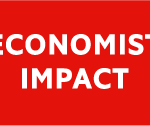 Rebuilding tourism in Asia-Pacific: A more conscious traveller? is a report from Economist Impact, commissioned by Airbnb. The research is based on a survey of more than 4,500 respondents in Australia, India, Japan, Malaysia, the Philippines, Singapore, South Korea, Taiwan and Thailand.
Rebuilding tourism in Asia-Pacific: A more conscious traveller? is a report from Economist Impact, commissioned by Airbnb. The research is based on a survey of more than 4,500 respondents in Australia, India, Japan, Malaysia, the Philippines, Singapore, South Korea, Taiwan and Thailand.
The onset of covid-19 and subsequent border closures brought international travel to a near standstill and impacted tourism like little before it. Now, as tourism starts to rebound after a lull, travellers are thinking deeply about their holiday preferences, choices and actions, Economist Impact research shows.
The rise of the ‘conscious traveller’ is presenting an opportunity for communities to grow their local economies off the back of the travel rebound, and also welcome an evolving form of win-win tourism that emphasises genuine connection.
The Economist Impact finds that people are thinking deeply—and holistically—about sustainable travel, and their understanding of it encompasses social, economic, cultural, community and environmental aspects. When asked what the two most important aspects of sustainable tourism are, economic (46.7%) and social (41.3%) aspects were ahead of environmental (32.1%), cultural (31.6%) and community (21.5%) considerations.
More than two in three people say it’s important to them to create a positive impact for locals, with 58% saying it’s important they do not contribute to issues such as over-tourism. In keeping with their desire to travel to less crowded destinations, many want to travel off the beaten path—about half the respondents plan to travel more frequently to rural destinations that haven’t caught the fancy of tourists yet. Additionally, 57% plan to travel more domestically than in the past, and aim to allocate more of their travel budgets within their countries.
Travellers are also mindful of the ways in which tourism can positively impact communities that are in need of economic recovery and want to factor this into where they travel and how they spend their money. Almost three in five travellers say they will be more conscious about familiarizing themselves with what is important to the communities they’re visiting and how they can make a contribution.
The desire for conscious travel is also being supported by technologies that are shaping travel practices. Eighty-seven percent of respondents are of the view that technologies are either enabling or can enable sustainable tourism, particularly by making information more widely and easily accessible. Separately, 43% believe that technology is making tourism in Asia-Pacific more inclusive by enabling more stakeholders to benefit.
Pratima Singh, senior manager for policy and insights at Economist Impact, and editor of this report says:
“As tourism recovers across Asia-Pacific, we’re seeing a sharp focus on conscious travel among travellers of all ages. The shifts in traveller behaviour—and motivations—could leave an indelible impact on tourism in the region if all concerned stakeholders play their cards right.”
Edited by: Stephen Morton



















